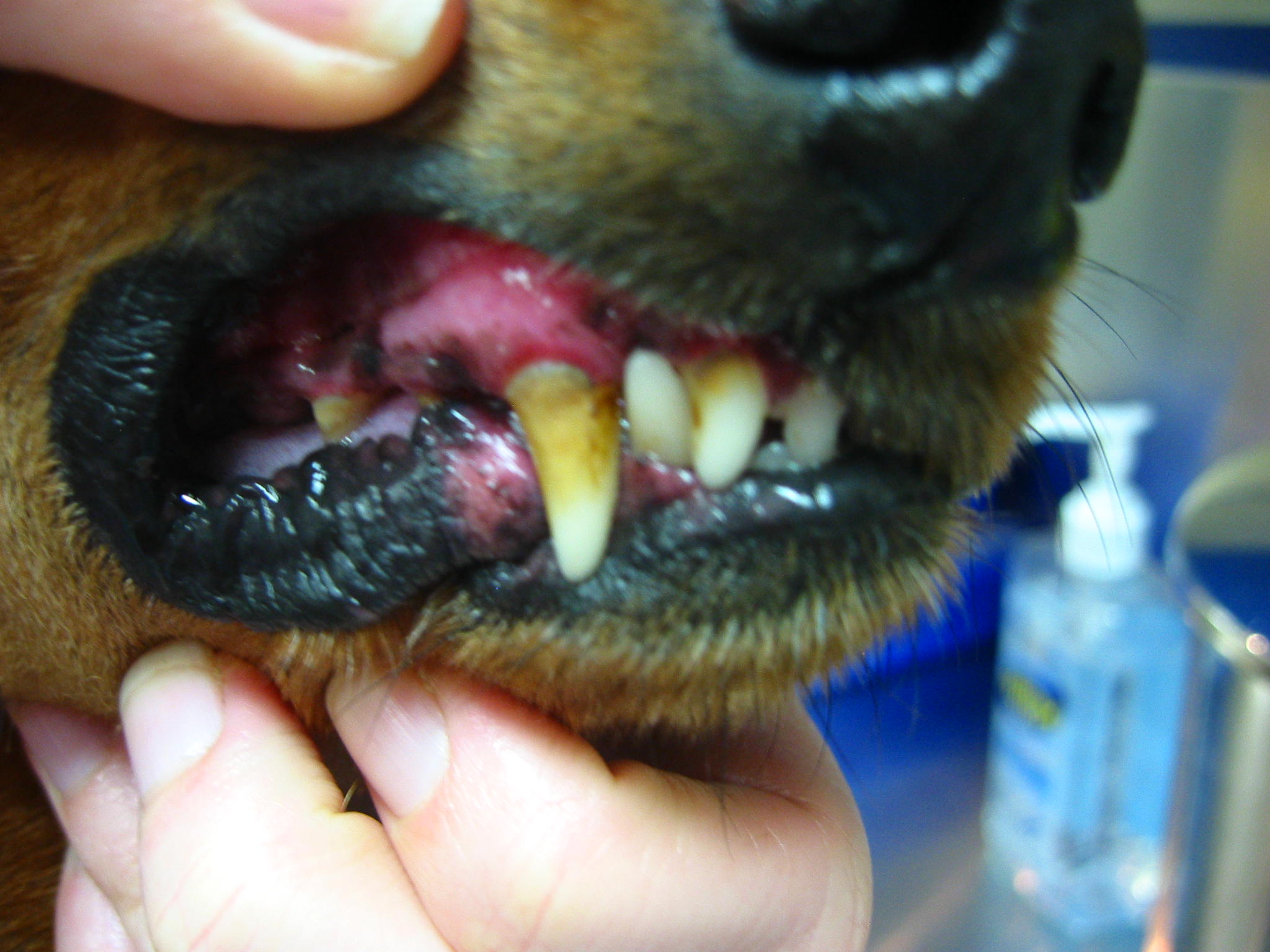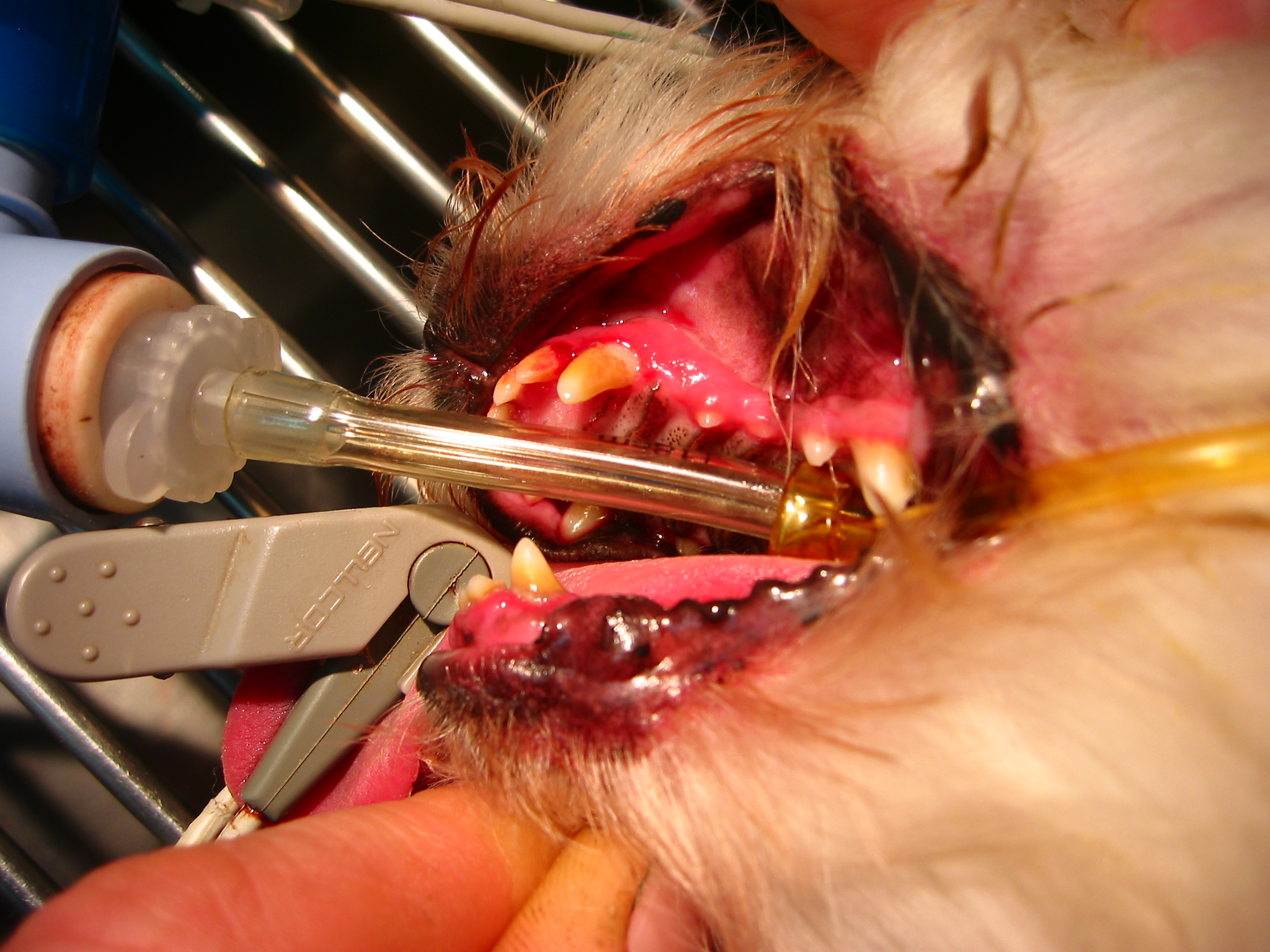Dental disease effects 70% of dogs and cats and will seriously affect your pet’s health if allowed to progress unchecked. Our staff members are all trained to give advice on the condition of your pet’s teeth and gums and recommend a number of ways to manage the problem. We have a full range of dental equipment including an ultrasonic descaler and polisher, and high speed dental drills, so your pet can have the same service and benefits that you would receive at the dentist.
Even if your pet isn’t showing signs of dental problems, we routinely examine the teeth and gums at the time of annual health checks and vaccinations. This is because many pets do not show symptoms of dental disease until the process is quite advanced. By detecting changes early we can help you institute simple steps to prevent problems in the future. These may include recommending diet changes and teaching you methods to brush pets teeth.
Chronic Ulcerative Paradental Stomatitis (CUPS) (courtesy of Hale Veterinary Clinic, Canada)
Dental Homecare
Home care products do not replace the need for regular dental checks and professional dental care under anaesthesia, but it does space out the need for professional care and means that teeth are less likely to be lost. Even humans who brush their teeth twice a day, floss and use mouthwash need to have their teeth examined and professionally cleaned by human dentists on a regular basis.
Toothpaste and Brushing
You can use a small child’s toothbrush but you should never use human toothpaste for your pet as these contain foaming agents which are not meant to be swallowed. Animal toothpastes come in special flavours (chicken, beef). Finger brushes are also available.
Compliance is key, and teeth must be brushed daily or at least every other day to be effective. Some pets will not tolerate having their teeth brushed at all.
Raw Bones
Bones are popular in Australia however they should be used with caution as there are some potential complications:
- Some pets will break their teeth on them, which can lead to tooth root abscesses
- Bones can also cause gastrointestinal obstruction and constipation, diarrhoea, and pancreatitis
- Cooked bones should never be fed as they are brittle and prone to splintering.
- You should always supervise your pet when they eat bones.
Dental Diets
Dental diets use several techniques to help reduce plaque. The first is that the kibbles are very large which means the pet must chew before swallowing them. These diets are also high in fibre which means the kibbles do not shatter when chewed but instead the tooth sinks into the kibble allowing plaque to be essentially scrubbed away.
Royal Canin Dental diet also contains sodium polyphosphate to bind calcium in saliva, reducing calculus formation. These diets are helpful only in cleaning the molars and premolars (i.e. the chewing teeth) but do not help the canines or incisors.
Dental Treats
Chewing on a proper dental chew daily can substantially reduce plaque and tartar by up to 69%. Dental chews must be the proper size for the dog.
Some treats contain sophisticated ingredients. For example, delmopinol in Oravet prevents future plaque attachment after the current plaque is rubbed off, and green chlorophyll in Greenies helps with bad breath.
Pig ears, rawhides, Kongs and kangaroo tendons can all be given for chewing on.
Chlorhexidine is antibacterial and kills the bacteria which form plaque. It can be used as a mouth rinse (Hexarinse) or applied as a gel (Mavlab Dental Gel) and should be combined with toothbrushing.
Water additives (Oxyfresh) and food additives (Plaque Off) are available for those really fussy pets.






